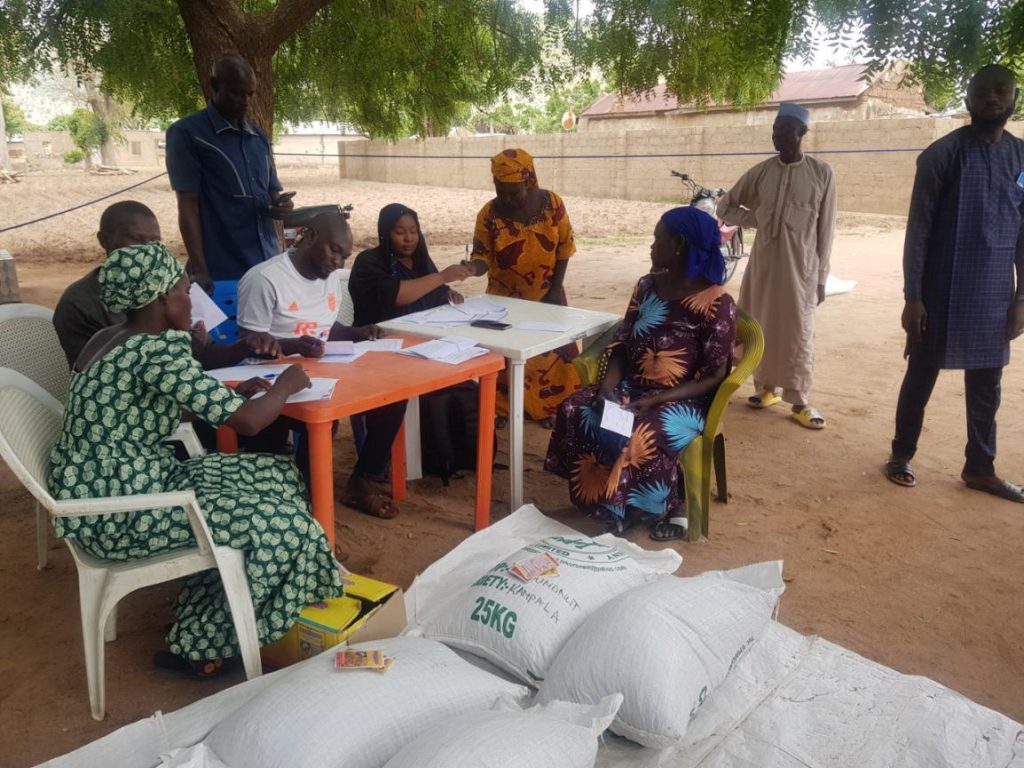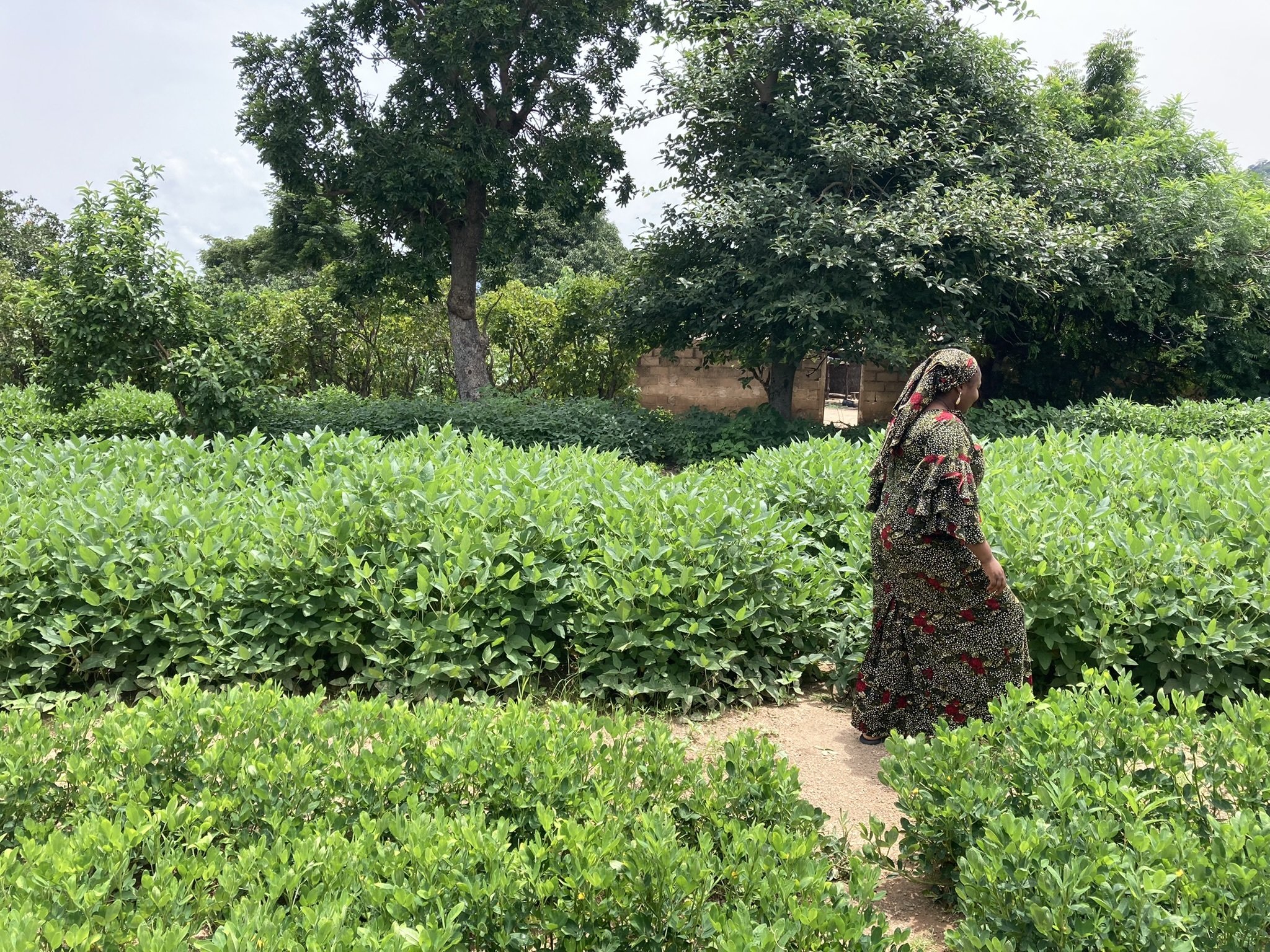Nuru Nigeria, as part of its community climate resilience strategy and in partnership with Deutsche Gesellschaft für Internationale Zusammenarbeit (GIZ), is providing northeast Nigerian farmers with seeds through their farmer cooperatives. These medium-maturing, drought-resistant, pest and disease-resistant high-yielding groundnut and soybean seeds have been distributed to over 4,000 farmers.
In the face of climate change and its adverse effects on agriculture, initiatives that promote resilient farming systems are crucial for smallholder farmers. The changing climate patterns have disrupted traditional farming practices with erratic rainfall patterns and increased pests and diseases, making it challenging for farmers to achieve consistent yields. To equip farmers to adapt to the challenges posed by climate change, Nuru Nigeria and GIZ introduced climate-smart seeds. These seeds are specifically bred to be high-yielding and capable of withstanding adverse weather conditions, such as drought.

Nuru Nigeria staff meeting with farmers for crop input distribution
Adaptive Seeds
These dry spells frequently lead to crop loss, and ultimately income loss for farmers whose crops are unable to withstand the lack of rain. Medium-maturing crops are often ready to harvest before the prolonged dry spells arrive. By shifting to medium-maturing crops, farmers minimize risks associated with both yield and income losses.
In addition to being medium-maturing, these soybean and groundnut seeds are naturally resistant to common pests and diseases, and they reduce the need for chemical pesticides and systemic fungicides. Pests and diseases can devastate crops, leading to significant losses for farmers. Furthermore, a reliance on agrochemicals to address the pests and diseases, leaves farmers with higher production costs. Pest and disease-resistant crops reduce environmental pollution by equipping farmers to shift away from the use of agrochemicals. As farmers decrease their losses from pests and diseases, they increase yields and ultimately increase their farming income.
Regenerative Agriculture – Building Soil Health
Soybeans and groundnuts are known for their ability to improve soil health, as they are nitrogen-fixing crops, which means they can convert atmospheric nitrogen into a form that plants can absorb. This natural process enriches the soil with nitrogen, reducing the need for synthetic fertilizers and enhancing long-term soil fertility. Healthy soil is vital to the growth of high quality, nutrient-dense food.
Household Food Security
These highly nutritious crops support household food security. They are rich in proteins, healthy fats, and essential minerals, making them valuable to a balanced diet. Cultivation of these crops addresses household hunger and food security for vulnerable families. Furthermore, with higher yields, farmers are able to sell more of their surplus, resulting in increased income for their families. The increased income equips farmers to purchase additional food items that they would not have been able to afford otherwise.
Nuru Nigeria’s collaboration with GIZ to provide medium-maturing, drought-resistant, and high-yielding seeds to farmers is vital to climate-smart agriculture that is sustainable and capable of adapting in the face of climate change.


